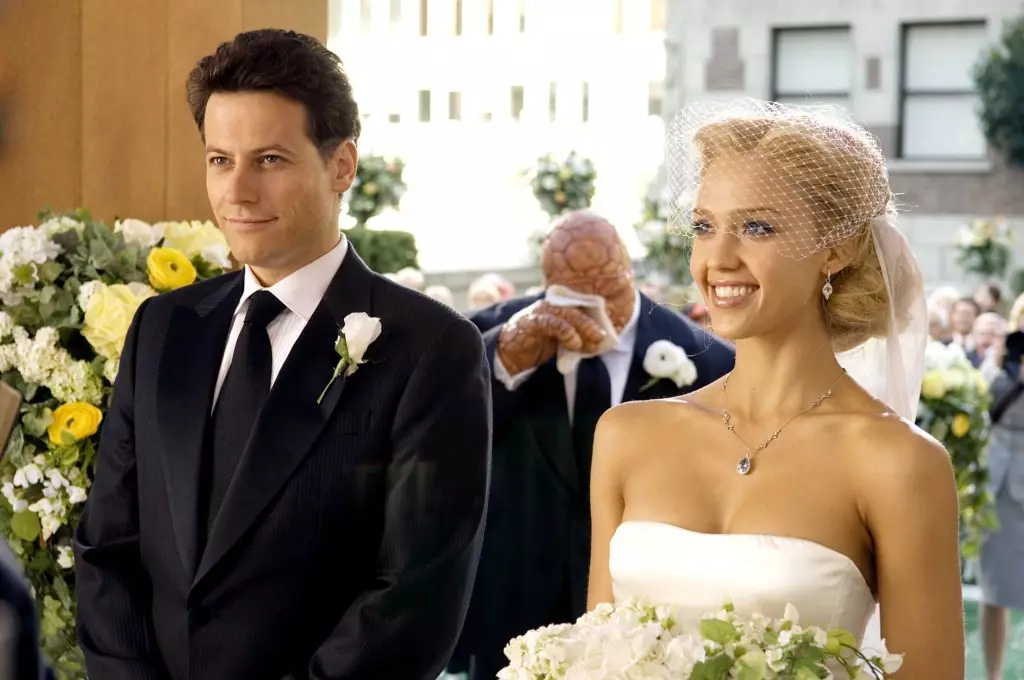In the hyper-competitive world of Hollywood, the narrative of what might have been often overshadows the realities of what is. Actors like Ioan Gruffudd, who once embodied the brilliant scientist Reed Richards aka Mister Fantastic, serve as poignant reminders of the fragile and fleeting nature of franchise opportunities. Despite the undeniable success of the early Fantastic Four films, the planned trilogy was never realized, leaving behind a sense of unfulfilled promise. This phenomenon raises an essential question: why do studios frequently abandon promising franchises, and what does this reveal about their understanding of audience loyalty and long-term storytelling?
The initial two films in the Fantastic Four franchise demonstrated that superhero movies can succeed both critically and commercially, grossing over $300 million each, which should have made a compelling case for further installments. Yet, as Gruffudd reflects, industry decisions are often driven by factors beyond artistic vision or fan enthusiasm. The 2009 reboot, which disastrously failed to recapture the magic, exemplifies how rushed or poorly conceived reboots can diminish brand equity rather than bolster it. The franchise’s abrupt halt after promising beginnings underscores Hollywood’s sometimes shortsighted approach—prioritizing quick returns over sustained narratives that could deepen fan engagement and revenue streams.
This pattern reveals a fundamental flaw in Hollywood’s mindset: viewing franchises solely as transient commodities rather than as evolving stories with deep emotional resonance. The potential for long-term storytelling, where characters develop, audiences grow attached, and the universe expands organically, often gets sacrificed at the altar of immediate box office figures or critical reception. Consequently, talented actors like Gruffudd experience a form of professional grief—mourning not just a role, but the loss of a piece of their creative identity. Hollywood’s focus on sequencing, reboots, and brand preservation often sideline the importance of legacy-building, leaving fans and actors alike with a sense of broken promises.
The Myth of the Unchangeable Franchise Fate
Despite the disappointments surrounding the original Fantastic Four series, the narrative about superhero franchises remains resilient. Marvel’s recent success reimagining its iconic characters demonstrates that persistent storytelling, strategic reinvestment, and respecting the source material can revive fortunes. Actors like Gruffudd recognize this shift, expressing optimism about new iterations of the franchise, even if they aren’t directly involved.
However, the confusion and speculation surrounding cameos, such as John Krasinski’s brief appearance as Mister Fantastic or other unconfirmed appearances, illustrate a larger issue. Hollywood often treats these moments as easter eggs or fan service rather than as integral parts of storytelling. This piecemeal approach can sometimes generate hype but fails to sustain long-term investment in a universe that feels cohesive and meaningful. It’s a stark reminder that franchise continuity relies not just on spectacle but on substantive narrative threads that actors and audiences can latch onto.
The discontinuity between early franchise plans and subsequent industry decisions highlights an inherent insecurity within Hollywood’s franchise model. Studios frequently pivot, rebrand, or reboot with little regard for past investments or fan sentiments. This approach fuels a cycle of disappointment, where loyal audiences are left questioning the authenticity of the stories they cherish. For actors like Gruffudd, it’s not just about missing out on further roles; it’s about witnessing the potential of a universe that could have been, but isn’t.
Revisiting the Power of Character and Community
Ultimately, the true strength of any franchise lies in its ability to forge lasting emotional bonds—between characters, actors, and fans. Gruffudd’s candid reflections on his time as Mister Fantastic reveal how personally intertwined actors become with their roles. When those roles are prematurely abandoned or neglected, it erodes not only professional identity but also the collective memory of what could have been.
While Hollywood’s obsession with rebooting and reimagining might suggest an obsession with novelty, it often overlooks the importance of nurturing its existing universe of characters and stories. Successful franchises recognize that these stories are more than mere properties; they are cultural touchstones that can unite communities, inspire new generations, and deepen the artistic landscape of cinema. By dismissing this potential, Hollywood risks undermining its own long-term power.
The enthusiasm for future Marvel projects and the curiosity of fans about potential cameos or new iterations underscore that audiences crave authenticity and continuity. They want stories that respect their emotional investments and honor the legacy of characters that have become part of their cultural fabric. For actors like Gruffudd, the hope remains that these stories can be carried forward with integrity—transforming missed opportunities into renewed possibilities and demonstrating that genuine connection outshines fleeting box office successes.
